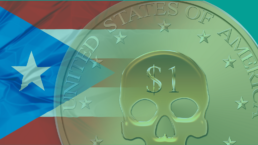The debt restructuring plan does not really alleviate the burden from Puerto Rico’s debt. On the contrary, it guarantees more pain and a future debt crisis.
By Sarah Molinari & Marisol LeBrón, TRUTHOUT
On January 18, Judge Taylor Swain of New York’s Southern District confirmed Puerto Rico’s eighth amended Plan of Adjustment (POA), setting into motion the closure of the largest municipal debt restructuring deal in the history of the United States. The POA modifies approximately $33 billion of the central government’s debt as part of Title III — the bankruptcy-like process established under the Puerto Rico Oversight, Management, and Economic Stability Act (PROMESA) — which has already cost Puerto Ricans $1 billion.

Since its announcement, the POA has been touted as putting an end to five years of brutal structural adjustment. For instance, Natalie Jaresko, executive director of the unelected Financial Oversight Board that has dictated Puerto Rico’s finances since 2016, celebrated the POA as a “new chapter in Puerto Rico’s history.” Gov. Pedro Pierluisi suggested that while the POA is “not perfect,” it ultimately protects Puerto Rico’s vulnerable public sector. In contrast, a multisectoral coalition of teachers, labor, pensioners, students and activists expressed immediate rejection of what they call the “plan del tumbe” (the shakedown plan). These groups have long been demanding a comprehensive debt audit, calling attention to the POA’s everyday implications, and resisting its confirmation by mobilizing online, in the streets, the legislature and the courts.
Rather than a “new chapter,” the POA affirms a debt that has not been meaningfully audited and that forecloses the pursuit of legal action against banks and underwriters as well as debt illegalities that the Financial Oversight Board itself previously challenged in court. Despite rhetoric from powerful political and financial elites in Puerto Rico and the United States, the POA will bring little relief to Puerto Ricans struggling under the weight of crushing austerity in an archipelago that is increasingly geared towards attracting foreign capital and incentivizing the settlement of wealthy North Americans in Puerto Rico as a means of boosting an anemic local economy while Puerto Ricans are increasing forced to migrate in search of economic stability
Recent Posts
Gavin Newsom’s last budget belies his ‘California for All’ pledge
February 24, 2026
Take Action Now Yet, even as the state is poised to lose billions in federal funding, and millions of Californians are losing access to health care…
Israel and American Hawks are Pushing U.S. to Iran War With Catastrophic Consequences
February 23, 2026
Take Action Now At the World Health Assembly in May, member states may endorse an unprecedented strategy declaring that health is not a cost – but…
A Child’s View of the Attack on Venezuela. And a Peace Flotilla
February 23, 2026
Take Action Now At the World Health Assembly in May, member states may endorse an unprecedented strategy declaring that health is not a cost – but…
How to Organize Safely in the Age of Surveillance
February 22, 2026
Take Action Now From threat modeling to encrypted collaboration apps, we’ve collected experts’ tips and tools for safely and effectively building a…




